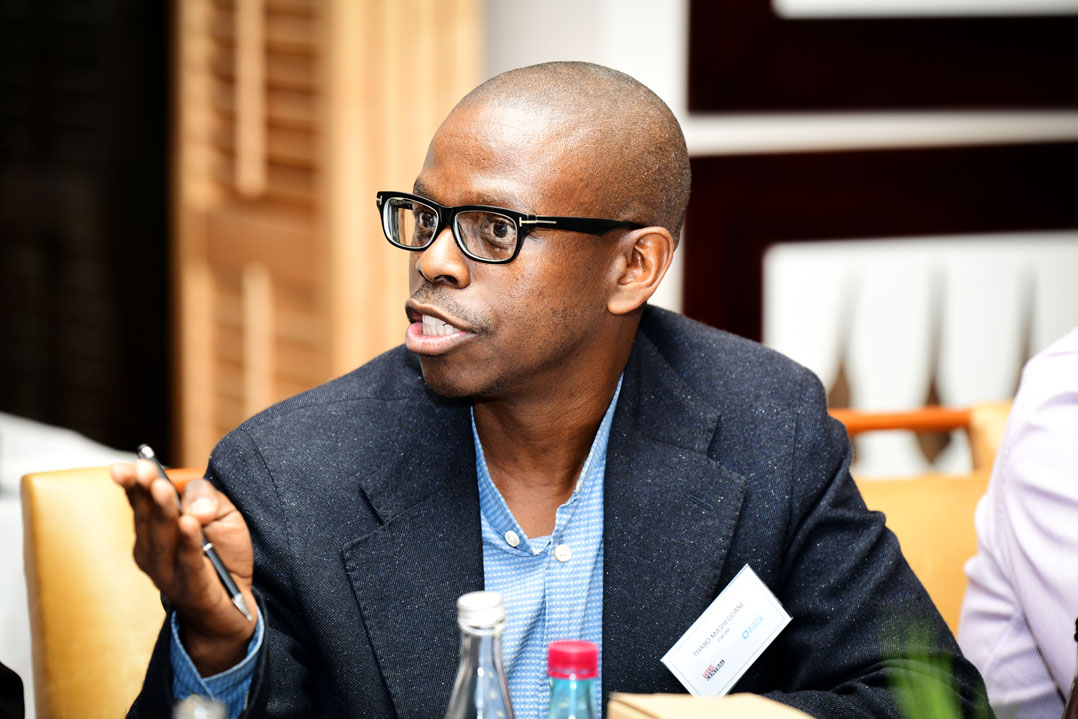 The sad reality is that many South Africans don’t have the aptitude to re-train for jobs in the digital economy and this is hindering companies on the path to automation.
The sad reality is that many South Africans don’t have the aptitude to re-train for jobs in the digital economy and this is hindering companies on the path to automation.
CIOs recognise the benefits of automating their data centre processes, but the political and social fallout it will generate is making companies wary of moving too far or too fast.
The degree to which IT decisions are influenced by social circumstances emerged clearly at a TechCentral CIO Perspectives Roundtable, sponsored by Micro Focus, to discuss “Automation Everywhere”.
While many participants said their companies had already automated some processes, it’s clear that nobody is in a hurry.
Data centres lie at the heart of business operations but generally still rely on manual processes with the potential for human error. Often, they’re surrounded by disjointed IT solutions built up over years, creating a complex environment where it’s hard to identify and resolve any faults. Technologies like robotic process automation (RPA) can reduce human errors, accelerate digital transformation and unlock the value of existing IT investments, but they’re not being enthusiastically embraced in South Africa. CIOs cite labour issues as the elephant in the room.
Effective automation in a factory can put 100 low-skilled people out of work, for example, and only create a handful of new jobs requiring higher skills. The collateral damage is enormous, because the people being fired are not the same as those being hired – and few companies have the appetite to go there.

Airports Company South Africa (Acsa) is holding back on automation partly because of the initial cost and partly because of the human fallout. It would reduce costs in the long run, but at the expense of its people, said CTO Kelebogile Mosiane.
Several examples of how companies in other countries have used automation, artificial intelligence (AI) and machine learning to modernise their processes and create new jobs were given by Mohammed Arafat, the director of pre-sales for emerging markets with Micro Focus. Arafat said South Africa needs a cultural shift, because individuals in other countries embrace IT to help build their own entrepreneurial businesses, while glass-half-empty South Africans only fixate on how IT can put them out of business.

Veruschca Hunter, head of technology for Absa, said automation doesn’t replace people; it replaces roles and skills and opens up new opportunities. “In the past, we didn’t have coders to create chatbots, and now we need them,” she said. “From a strategy point of view, you have to look at reskilling and upskilling and keep people up to date with new technologies.” Since automation can reduce costs, reduce risks, and increase stability and resilience, both the IT department and the business units should support its implementation, she said.

But Hercules Ragoleka, executive of network quality operations at Openserve, pointed out that every corporation is affected by the national agenda for education, and the country simply isn’t training enough youngsters with digital skills. As well as failing to equip the next generation with those skills, the country also lacks a social system able to support older workers who face redundancy. The fourth Industrial Revolution will require fewer people with different skills, and some people can’t be reskilled, he said.

An extra word of warning came from Steve Jump, Telkom’s head of corporate information security governance. If a company has a list of human employees and a list of the robots it uses, “you need to make sure that list never comes out”, he said. “If people start seeing robots appearing on the SAP list, I don’t want to be in that room.”

The panellists acknowledged that 50 years ago, Japan, South Korea and Singapore were no different, and now it’s South Africa’s turn to tackle the issue. That requires a growth mindset from the government and private sector business leaders with a vision that looks at least 20 to 30 years ahead. If that doesn’t happen, the negative long-term consequences of not adapting for a technology-led future will far outweigh the short-term pain of making the necessary moves now.
Despite the reticence caused by the social impact, CIOs largely agree that automation is a necessary step. One of its benefits is the ability to instantly identify where a problem is occurring, such as a piece of malfunctioning code, an employee trying to access something they shouldn’t, or an attempted external attack. It can instantly triage the problem so the IT team sees where the problem lies and initiates a fix.
Jump is a fan of RPA because it allows for far better oversight of what’s happening in the systems. He believes automation is unavoidable but sees massive problems behind its apparent simplicity if it just adds a “fluffy wrapper” around the underlying issues you want to get rid of.
Changing the technology will still leave the same problems if you don’t update the core processes too, said Hunter. Many businesses still use ancient processes that are now irrelevant or adequate, but nobody has revisited them, she said.
Eskom is introducing automation slowly, starting with some low hanging fruit, said chief IT adviser Thabo Mashegoane. One early win has been a self-service password reset project. “This facility has been fantastic to have and it’s a form of putting the power back to the end user. It’s very successful,” he said.

However, if a company runs on legacy systems developed by people who have now retired, the systems may be too fragile to automate, Ragoleka warns. “The circumstances on the ground for every business dictate the strategy. Some systems you can’t automate because you don’t want to touch them. You can’t automate passwords on a system you are scared to even reboot, because if it doesn’t come back up nobody can help you.”

Right now, automation isn’t on the agenda for most heads of IT because of the parlous state of the economy, said Abdul Baba, a non-executive director with Computer Aid International. “They realise they need to redesign their business architecture to get to the fourth Industrial Revolution. We need to look at what the priorities are, but the transformation journey is taking too long because of the economic problems.”
- This promoted content was paid for by the party concerned




